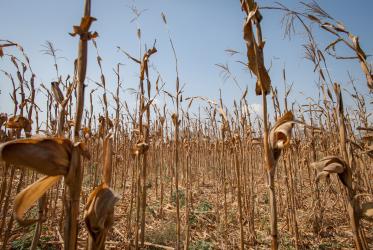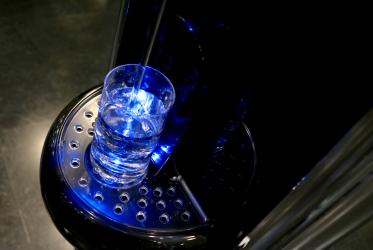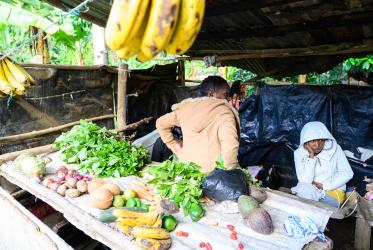The Ecumenical Water Network (EWN) of the World Council of Churches (WCC) has been observing World Water Day on 22 March since its inception. It is an important occasion for all those working on water issues, including the WCC, to highlight the global water crisis. Particularly the Lenten campaign of the WCC, the “Seven Weeks for Water”, is an opportunity to galvanise its constituencies to discuss issues around water.
UN-Water has chosen “water and jobs” as theme for this year's World Water Day. This is indeed a relevant theme, as UN-Water says “1.5 billion people work in water-related sectors and nearly all jobs depend on water and those that ensure its safe delivery”.
Water is a very scarce resource, despite two thirds of Earth being covered with water. Of this vast amount of water on our planet, 97percent are saline water found in the oceans and the seas. The remaining three percent is freshwater found in glaciers and ice, below the ground, or in rivers and lakes. Of that three percent about 69 percent is frozen in glaciers and icecaps. Of the remaining freshwater, 30 percent is groundwater. Contrary to popular belief, only 0.3 percent is found in rivers and lakes. The rest is found in the atmosphere.
It is also interesting to note that the amount of fresh water used by human beings for domestic use including drinking, bathing, sanitation needs including washing our cars are only around 10 percent of total usage. The remaining 90 percent is used for agriculture (70%) and energy production (20%).
The average per-capita water consumption recommended by the World Health Organization is 100 litres per day and person. Many get more than that but many others have to make do with as little as 20 litres per day and person, for example some communities in the West Bank, Palestine.
However, it is important for us to know why agriculture and energy production require around 90 percent of fresh water consumption. It is because we “eat” more water than we drink.
An interesting study by the Water Footprint Network shows that it takes about 140 litres of water to produce a cup of coffee and about 15'500 litres to produce 1 kilogram of beef. This is the "virtual water" which is used in the production process, including transportation, production of energy for various forms of processing, packaging, etc.
Everything we eat or even the clothes we wear, the household products we use including the electronics and all other goods have a water footprint. An overview of “virtual water” hidden in many products including food, has been compiled by the EWN and is available on our website.
There is a strong linkage between water, food and energy. Until 2050, the global food demand will rise by almost 70 percent. That would mean there will be nothing left for drinking and domestic usage, if water consumption in the food sector would continue to grow in line with “business as usual”.
The slogan of UN-Water this year is “better water, better jobs”. This does not concern only jobs in sectors related to water, such as water supply department, fisheries, or agriculture. But if we keep "virtual water" in mind, every job we do has a direct or indirect linkage with water. The more judiciously we use water, the better our chances for sustainability. That's why the goal related to water in the Sustainable Development Goals (SDGs) 2030 aims not only at availability of safe drinking water and sanitation but also at sustainable management of water.
The goal #6 of the 2030 SDGs aims at making universal access to water and sanitation a reality by 2030. The chairperson of the International Reference Group of the EWN-WCC, Ms Veronica Flachier, once said, “till the last person on this planet has safe and dignified access to water, we cannot celebrate the World Water Day. Until then, we must observe this day to mobilise communities and advocate for water justice with our governments."
More information:






